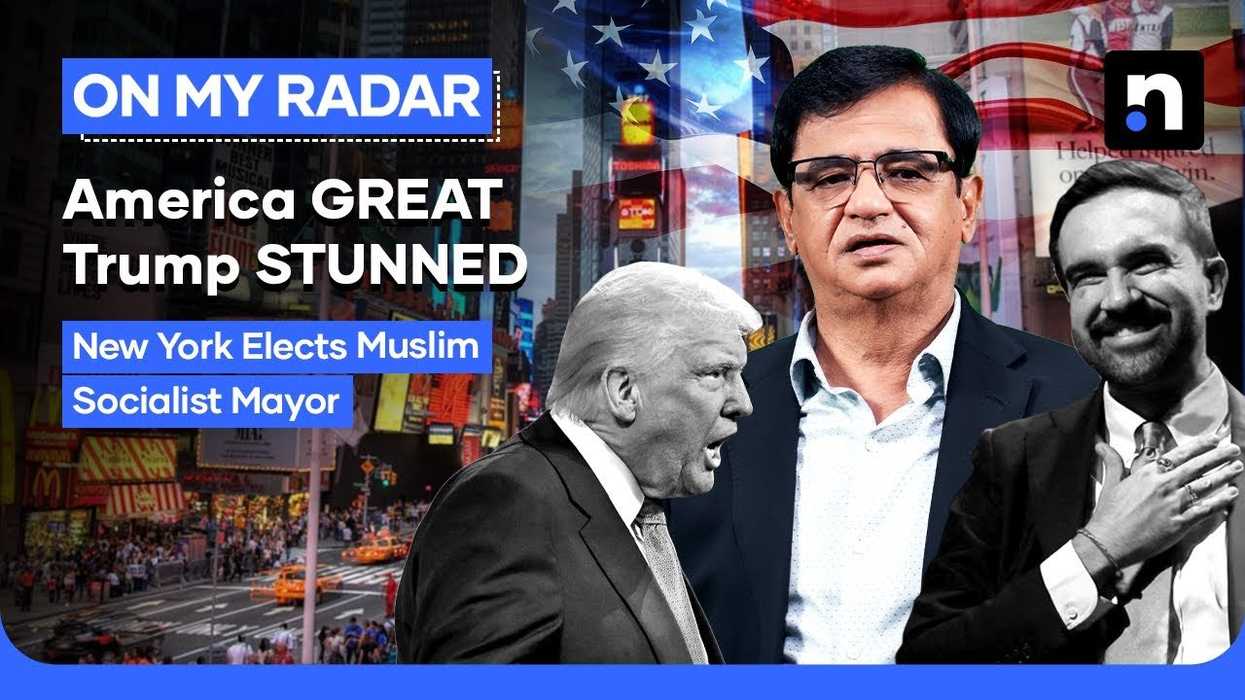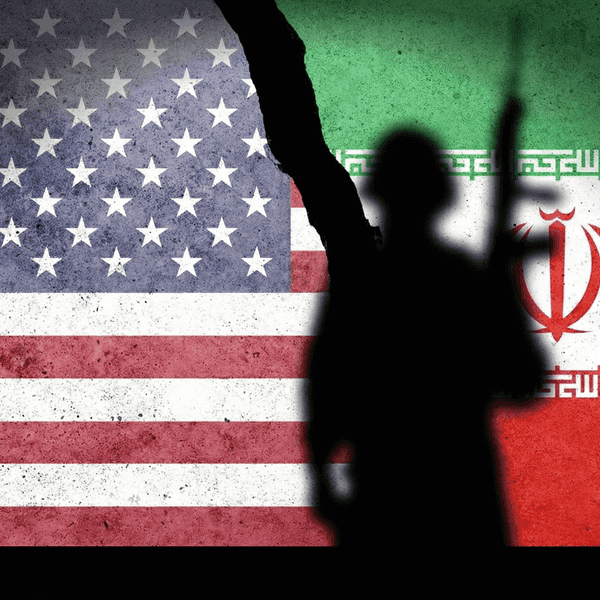New York elects Zohran Mamdani as its first Muslim mayor, marking a democratic resurgence
Kamran Khan says Zohran Mamdani’s election shows that when justice fails, people rise to reclaim it
News Desk
The News Desk provides timely and factual coverage of national and international events, with an emphasis on accuracy and clarity.
The United States - often hailed as the world’s foremost democracy - has once again demonstrated the strength of its democratic institutions with the election of 34-year-old Zohran Mamdani as New York City’s first Muslim mayor.
His victory, seen as a powerful response to political polarization under former president Donald Trump, has renewed global debate over America’s democratic character and inclusivity.
In the latest episode of “On My Radar” , Kamran Khan said Mamdani’s rise reflected the enduring vitality of democratic values that built America’s global influence - liberty, equality, and merit - all of which remain alive and well. He noted that the election underscored how voters in the United States continue to uphold the principles of diversity and fairness even amid ideological divisions.
Mamdani’s triumph is historic not just for his faith and background but for what it represents in contemporary American politics. Born on October 18, 1991, in Kampala, Uganda, and raised in New York from the age of seven, Mamdani is the son of Mahmood Mamdani, a Ugandan-born Indian academic, and Mira Nair, the globally acclaimed Indian filmmaker. A Democratic Socialist and hip-hop musician, he entered politics in 2021, when he was elected to the New York State Assembly.
His election campaign - driven by social media outreach - inspired people across religions, ethnicities, and age groups, particularly youth, to engage politically. Mamdani’s message of economic justice, equality, and resistance to authoritarianism resonated strongly with urban voters.
According to Kamran Khan, Mamdani’s success has also dealt a political blow to former president Donald Trump, coming as a rejection of his populist and divisive approach.
Initially viewed as a weak contender, Mamdani built his campaign on an anti-Trump narrative, gaining broad support from volunteers and working-class communities. In a major upset, he defeated Andrew Cuomo, the former New York governor and Trump ally, despite Cuomo’s political experience far exceeding Mamdani’s age.
Trump, however, attempted to undermine Mamdani by branding him a “crazy communist,” threatening his arrest, and warning that federal funds would be cut if he won. He even appealed to New York’s Jewish community to oppose him. Yet, voters defied these threats, decisively rejecting the Republican message.
Delivering his victory speech, Mamdani directly addressed Trump, declaring that he was not merely a mayor but an “ideological challenge” to Trump’s politics, vowing to amplify voices historically silenced in American power corridors.
Observers say Mamdani’s win has drawn global attention because of the immense influence of the New York mayor’s office. The position is widely regarded as the most powerful local government role in the world, with an annual budget of $115.9 billion - nearly twice Pakistan’s national budget.
The mayor has authority to appoint or dismiss heads of key departments including police, housing, education, health, sanitation, and fire services, and supervises more than 300,000 municipal employees.
Unlike mayors in South Asia, particularly Karachi’s mayor Murtaza Wahab, the New York mayor has sweeping administrative powers and even the right to veto the city budget or impose new taxes. “This is a point worth noting for Sindh Chief Minister Murad Ali Shah,” Kamran Khan remarked, “who tried to compare Mamdani’s position to that of Karachi’s powerless mayor.”
Mamdani’s progressive credentials stem from his long-standing activism. He has joined protests for workers’ rights and once went on a hunger strike with New York taxi drivers. His victory, analysts say, represents not only a political shift but a social awakening in the United States.
The election results also marked one of the toughest political days for Trump. Democrats simultaneously scored major wins in New Jersey and Virginia, where two female Democratic candidates were elected governors - both having campaigned on anti-Trump platforms.
Mamdani has also made headlines for his outspoken criticism of Israel’s actions in Gaza. He publicly condemned the violence and stated that if Israeli Prime Minister Benjamin Netanyahu visited New York, he would “seek his arrest.” Despite New York’s significant Jewish influence in business and media, voters supported Mamdani - a decision many see as proof that principle still trumps prejudice in American politics.
The Democrats’ consecutive victories in New York, New Jersey, and Virginia indicate growing public fatigue with Trump-era policies, including trade restrictions, immigration crackdowns, and the climate of fear they fostered.
With midterm elections approaching, Mamdani’s success has revitalized the Democratic Party, re-energizing its base after a period of stagnation under President Joe Biden’s low-visibility leadership.
Mamdani’s campaign was anchored on six key promises that defined his appeal:
- Rent control: Preventing rent hikes for nearly two million tenants to protect residents from rising housing costs.
- Free public transport: Making the city’s bus service free and faster for all, especially low-income commuters.
- Free daycare: Establishing universal free daycare for infants and young children to help working parents balance family and career.
- Affordable food: Opening government-run supermarkets in low-income areas to sell essentials at minimal profit.
- Higher wages: Raising the minimum wage to $30 per hour by 2030 to ensure a fair standard of living.
- Progressive taxation: Funding these reforms through higher taxes on corporations and individuals earning over $1 million annually — expected to raise an additional $10 billion per year.
Kamran Khan observed that Mamdani’s campaign was more than an election drive; it was the beginning of a socio-economic movement. A young, Muslim, middle-class immigrant with socialist ideals now holds one of America’s most visible public offices - a development that could reshape the country’s political narrative.
Ultimately, the election of Zohran Mamdani has sent a powerful message: when systems fail to deliver justice, the people themselves rise to reclaim it.








Comments
See what people are discussing